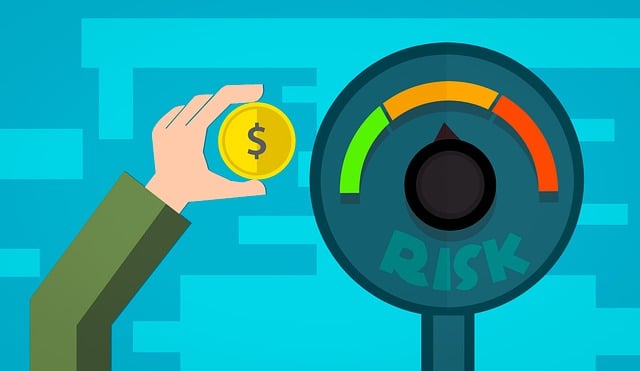E-commerce businesses face unique risks such as data breaches, cyberattacks, customer disputes, and product liability claims. What does business insurance cover? Policies offer protections including property damage, general liability, data breaches, business interruption, and more. Key coverage areas ensure operational continuity, asset protection, and customer trust. Tailored e-commerce insurance policies address specific online risks like cyber threats, data loss, and intellectual property theft. Understanding the claims process is crucial for recovering from losses promptly.
In the dynamic landscape of e-commerce, understanding what does business insurance cover is paramount. This comprehensive guide navigates the intricate risks unique to online businesses and highlights the importance of robust business insurance for their resilience. We delve into common coverage areas, focusing on cyber threats, property, and liability considerations essential for protecting your digital assets. By exploring the claims process, this article equips entrepreneurs with knowledge to safeguard their ventures against unforeseen losses.
Understanding E-commerce Risks: A Comprehensive Overview

E-commerce, while offering immense opportunities, comes with its fair share of unique risks and challenges. From data breaches and cyberattacks to customer disputes and product liability claims, online businesses face a myriad of potential threats that can disrupt operations and impact profitability. Understanding these risks is the first step in mitigating them effectively.
Business insurance plays a pivotal role in safeguarding e-commerce enterprises against such uncertainties. What does business insurance cover? It typically includes protections for property damage, general liability for customer injuries or property losses, and coverage for data breaches and cyberattacks. Additionally, it can extend to business interruption, providing financial support during periods when operations are halted due to insured events. By assessing these risks and securing appropriate insurance, e-commerce businesses can ensure continuity, protect their assets, and maintain the trust of their customers.
The Importance of Business Insurance for Online Businesses

In today’s digital era, e-commerce has become a powerful force, revolutionizing the way businesses operate and consumers shop. However, with this growth comes unique challenges and risks that require careful consideration. One of the most vital aspects of managing an online business is understanding and securing appropriate coverage through business insurance.
Business insurance serves as a safety net, providing financial protection against various potential liabilities and uncertainties. When it comes to e-commerce, what does business insurance cover? It encompasses a wide range of risks specific to online operations, including but not limited to data breaches, cyber attacks, and customer disputes. For instance, general liability insurance can protect against claims of product liability or personal injury related to your online sales. Additionally, coverage for business interruption ensures continuity during unforeseen events, while professional liability insurance safeguards against errors and omissions in your digital services.
Common Coverage Areas in E-commerce Insurance Policies

E-commerce insurance policies are designed to protect businesses from various risks unique to online sales and operations. What does business insurance cover? Broadly, it includes protection against liability claims, property damage, and income loss. For e-commerce, specific coverage areas often include cyber liability, which guards against data breaches and hacking incidents; product liability, covering damages arising from defective or hazardous goods sold online; and business interruption, compensating for revenue lost due to unforeseen events like natural disasters or system failures.
Additionally, these policies may offer protection against shipping and delivery-related risks, such as loss or damage during transit, as well as coverage for intellectual property theft, including patents, trademarks, and copyrights. Some policies also include employment practices liability, protecting against claims of unfair treatment or discrimination by employees, and professional services liability, which covers mistakes or negligence in business operations, like inaccurate financial advice or faulty website design.
Protecting Your E-commerce Business Against Cyber Threats

In today’s digital landscape, e-commerce businesses are increasingly vulnerable to cyber threats such as data breaches, ransomware attacks, and phishing schemes. What does business insurance cover in this context? Comprehensive business insurance for e-commerce operations should include specific clauses designed to protect against these emerging risks. This can ensure the financial stability of your business if a cyber incident results in significant data loss, operational disruption, or legal liabilities.
Beyond financial protection, effective business insurance for e-commerce also covers measures to prevent and mitigate cyber threats. This includes funding for incident response teams, legal fees associated with data breach investigations, and costs related to restoring operations after an attack. By ensuring your business insurance policy keeps pace with evolving cyber risks, you can safeguard not only your financial health but also the integrity of your online brand and customer trust.
Property and Liability Considerations for Online Retailers

For online retailers, understanding what does business insurance cover is paramount. Property insurance is essential to protect your e-commerce business from physical damage or loss, such as fires, theft, or vandalism. This is crucial given that while your primary operations may be digital, you still possess and manage tangible assets like inventory, equipment, and technology infrastructure. Liability coverage, on the other hand, shields you from claims related to injuries or damages sustained by customers, employees, or third parties on your premises or as a result of your business activities. This includes protection against product liability claims, which are common in e-commerce due to the potential for defects, misrepresentations, or errors in online product listings.
Business insurance policies tailored for e-commerce specifically can aggregate property and liability protections, offering comprehensive coverage. They may include provisions for business interruption, which compensates for lost revenue during periods when your online store must close due to insured events, ensuring continuity of operations. Additionally, these policies can cover extra expenses incurred during the recovery process, providing financial stability during challenging times.
Navigating the Claims Process: What to Expect After a Loss

After experiencing a loss, whether it’s due to property damage, data breach, or liability issues, understanding the claims process is crucial for any e-commerce business owner. The first step involves contacting your insurance provider as soon as possible to initiate the process. They will guide you through the initial steps and assign a claims adjuster who will investigate the incident, verify details, and assess the loss based on your policy terms.
During this time, it’s essential to gather all necessary documentation related to the loss, such as invoices, contracts, and any evidence of damage or breach. Your insurance company will then provide an estimate for repairs, replacement, or settlement amounts, ensuring that what Does Business Insurance Cover? is clearly communicated throughout. This process aims to help businesses recover promptly and mitigate further risks by replacing or repairing covered losses.
